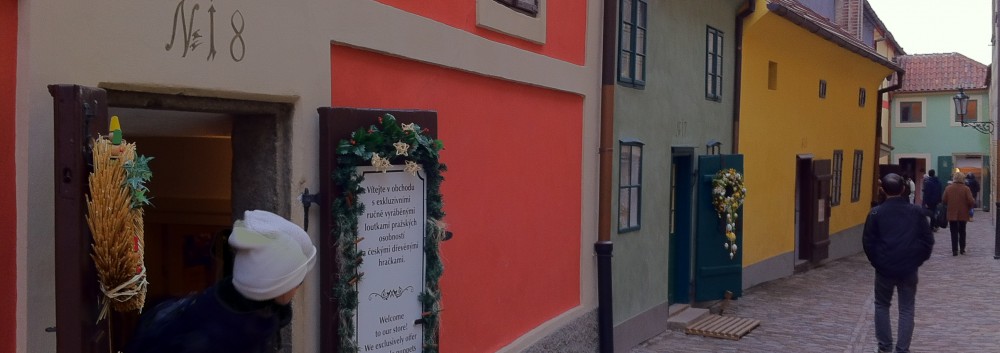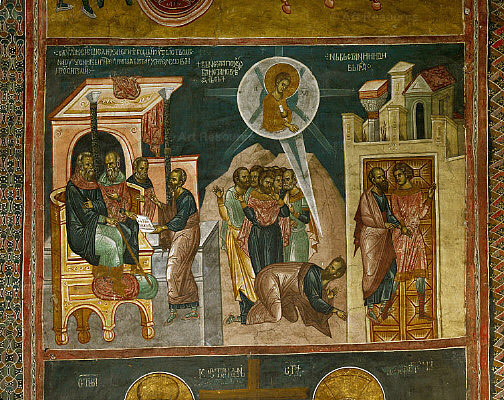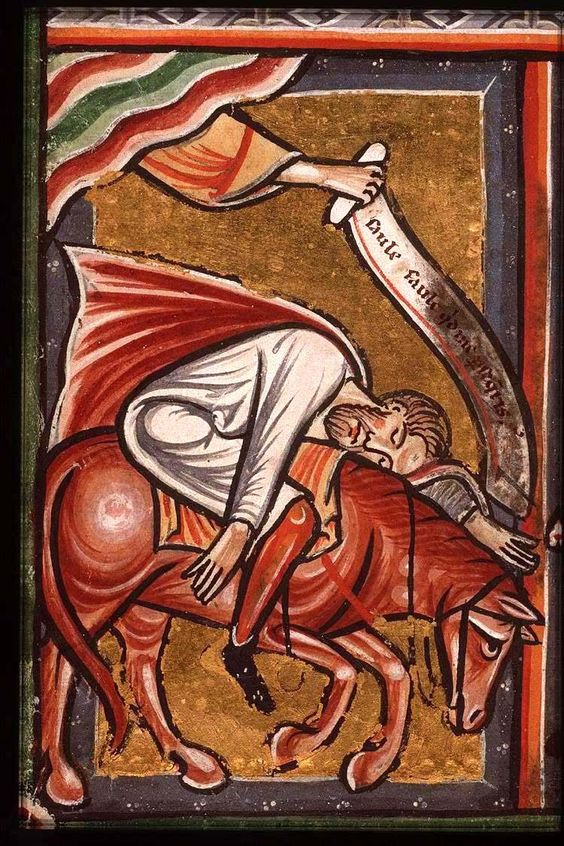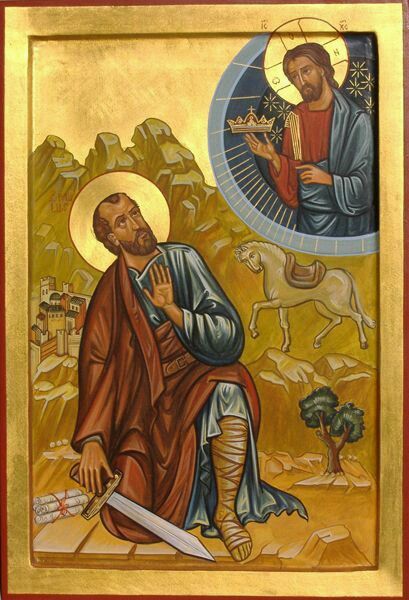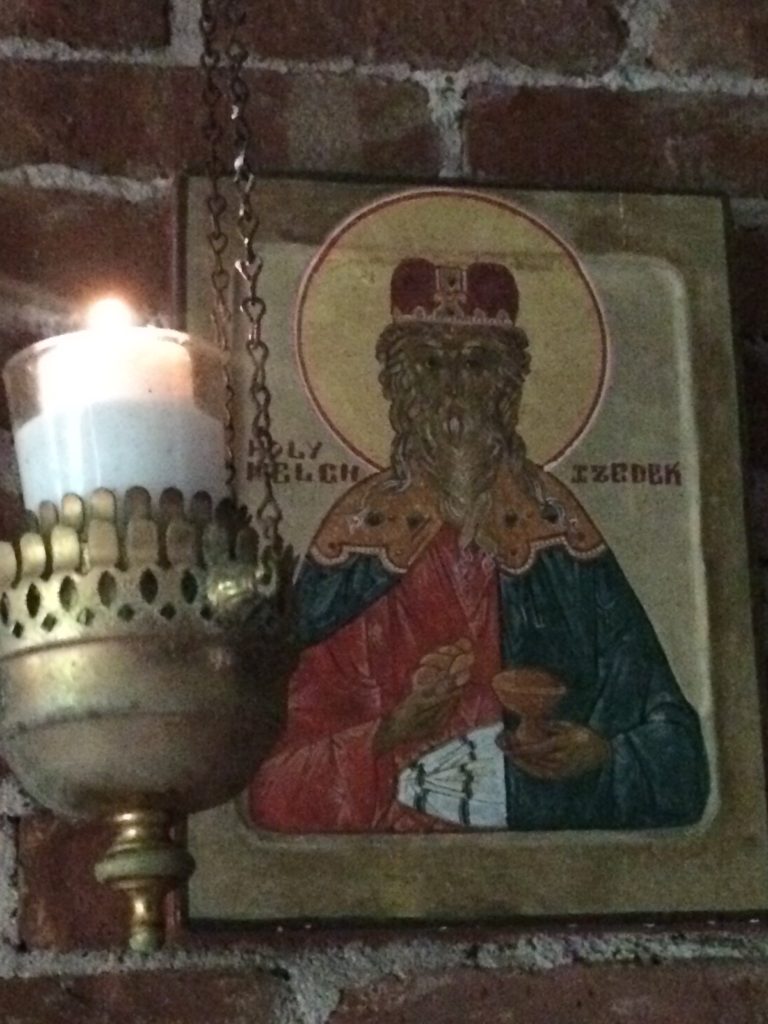
But I am afraid that somehow, just as the serpent deceived Eve by his cunning, your minds may be led astray from the sincerity and the purity you have toward Christ. For if a newcomer preaches another Jesus whom we did not preach, or if you have received a different spirit whom you did not receive [from us], or a different gospel–you tolerate that person well enough. (2 Cor. 11:3-4)
St. Paul says that he betrothed the parish in Corinth to Christ as a virgin is married to her groom. But he is afraid that they will listen to false teachers, just as the virgin Eve listened to the serpent.
That serpent never physically defiled Eve, did he? Yet he did destroy her virginity of heart …. the church is a virgin; she is a virgin now and may she remain a virgin forever. Let her [the Church] beware of the deceiver …. Are you perhaps going to say to me: If the Church is a virgin, how does she produce children [in the font]? She imitates Mary, who gave birth to Our Lord. Did not the holy Mary bring forth her child and remain a virgin? So, too, the Church brings forth children and is a virgin.
St. Augustine of Hippo, On Converts and the Creed
The serpent is described in Genesis as “crafty” and “cunning.” These are insults, not compliments. Today, we might say “shady” and “deceptive.” The serpent lied. Eve listened to those lies and the serpent seduced her. She took the serpent’s words into herself through her ears.
Through her hearing, Eve conceived disease, death, and decay. Through her hearing, the Virgin Mary conceived the Word made flesh. Because Eve listened to the serpent and brought Death into the world, some early preachers suggested that she conceived Cain–who killed his brother Abel–by the serpent whispering in her ear. Contrasting this with the Virgin’s consent to the angel Gabriel’s request that she bear the Word of God, these preachers also suggest that Mary conceived Christ through her ears, by hearing.
The Church gives birth to her children in the font. But these children are conceived by hearing as well. “How are they to believe, unless they hear a preacher? And how are they to hear a preacher, unless one is sent?” (Romans 10:14) Ears and hearing are fundamental to [spiritual] reproduction! Who’d athunk it?!
